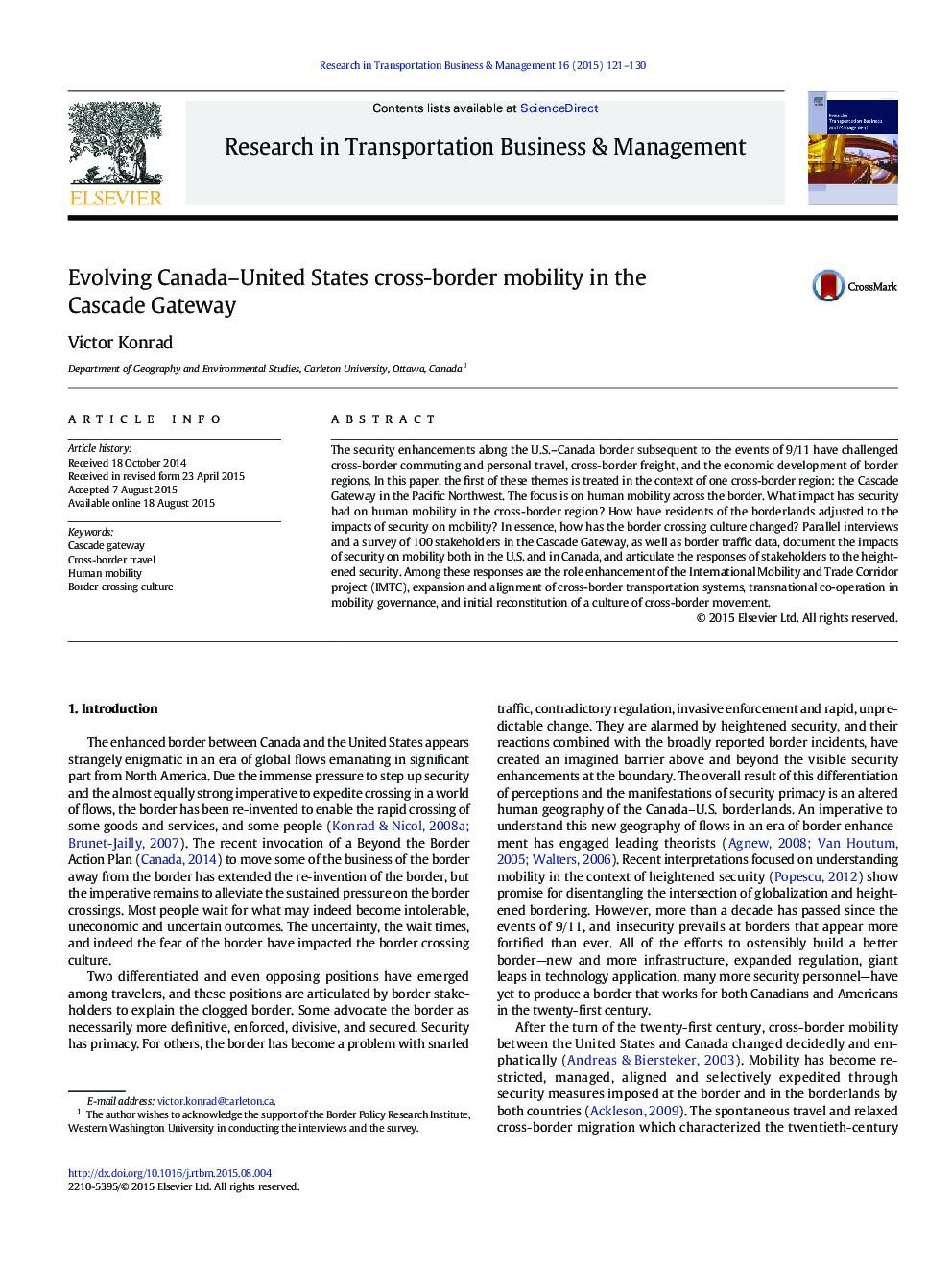| Article ID | Journal | Published Year | Pages | File Type |
|---|---|---|---|---|
| 998692 | Research in Transportation Business & Management | 2015 | 10 Pages |
Abstract
The security enhancements along the U.S.-Canada border subsequent to the events of 9/11 have challenged cross-border commuting and personal travel, cross-border freight, and the economic development of border regions. In this paper, the first of these themes is treated in the context of one cross-border region: the Cascade Gateway in the Pacific Northwest. The focus is on human mobility across the border. What impact has security had on human mobility in the cross-border region? How have residents of the borderlands adjusted to the impacts of security on mobility? In essence, how has the border crossing culture changed? Parallel interviews and a survey of 100 stakeholders in the Cascade Gateway, as well as border traffic data, document the impacts of security on mobility both in the U.S. and in Canada, and articulate the responses of stakeholders to the heightened security. Among these responses are the role enhancement of the International Mobility and Trade Corridor project (IMTC), expansion and alignment of cross-border transportation systems, transnational co-operation in mobility governance, and initial reconstitution of a culture of cross-border movement.
Keywords
Related Topics
Social Sciences and Humanities
Business, Management and Accounting
Business and International Management
Authors
Victor Konrad,
